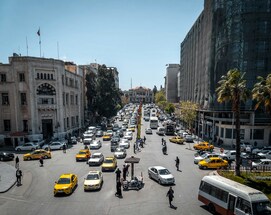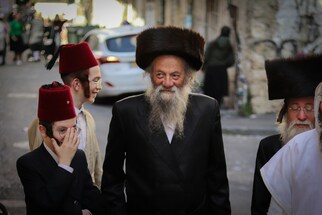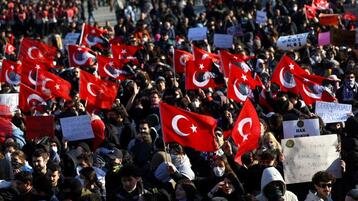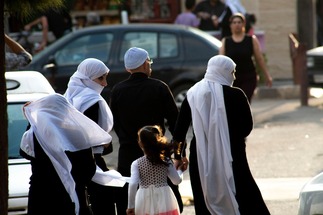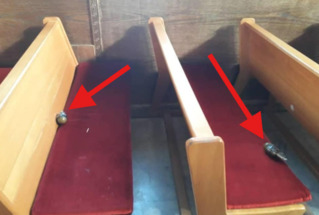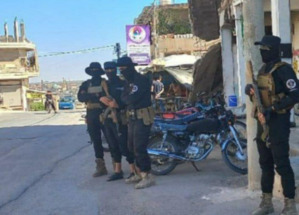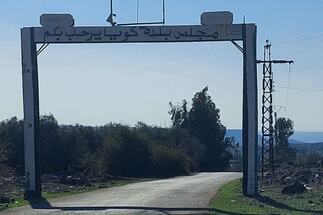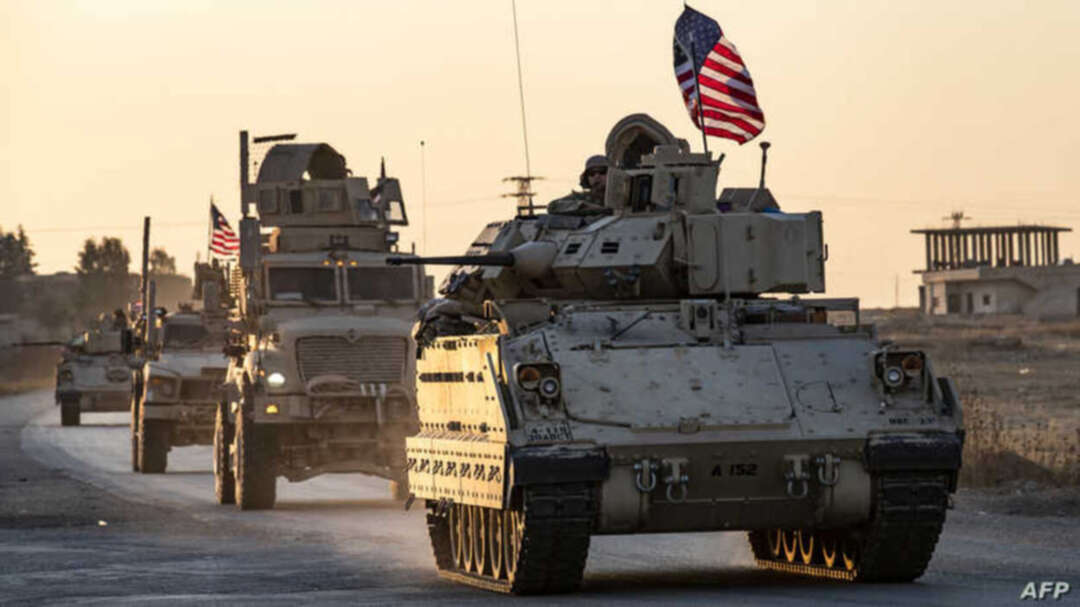-
Iran sent thousands of troops to Iraq for Shia pilgrimage: Iranian commander
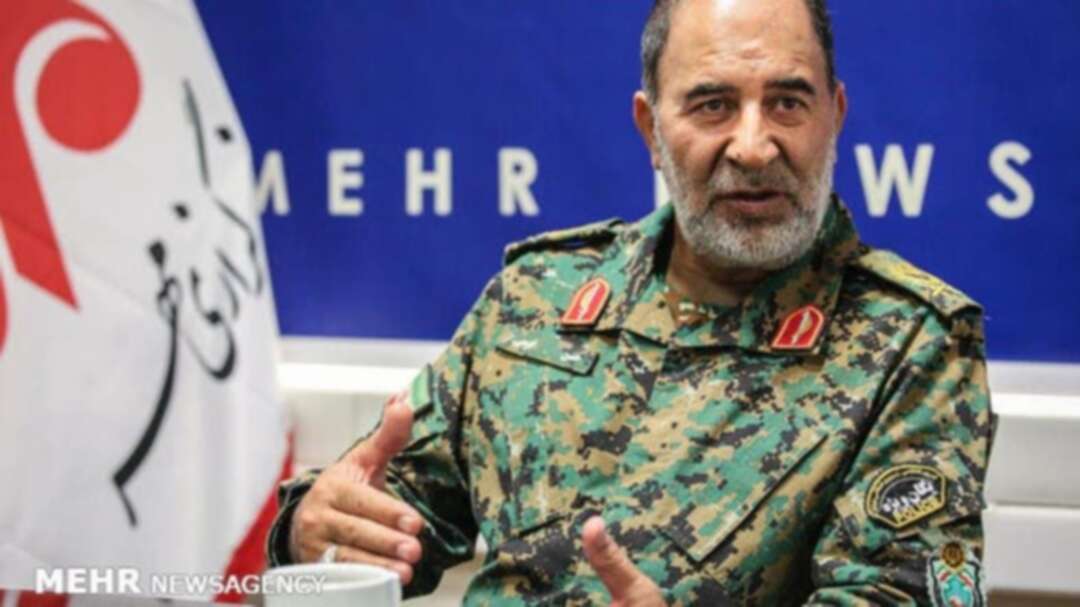
Iran has sent 7,500 members of its special unit law enforcement force to Iraq, according to the force’s commander, amid accusations from Iraqi protesters that Iranians have been directly involved in the crackdown on the protests in Iraq.
Iran is sending these forces to provide security for the Arbaeen Pilgrimage, a Shia religious ceremony, claimed the commander of the “special unit law enforcement force” Gen. Hassan Karami, reported the semi-official Mehr news agency on Monday.
Iran also has undercover agents in the crowds to control the situation, he said.
The special unit law enforcement force is responsible for dealing with protests in the country, and it was heavily involved in the crackdown on the protests that broke out in Iran between December 2017 and January 2018 in over 100 cities.
During those protests, 30 Iranians were killed and over 5000 were arrested, 50 of whom were tortured to death.
The thousands of Iranian forces sent to Iraq have been sent to help suppress the current protests in the country, say some observers.
The Iraqi protesters have accused Iran of being directly involved in the crackdown of their protests.
An Iraqi protester interviewed by Reuters on October 3 said that Farsi-speaking Iranians, not Iraqi forces, have been shooting at people during Iraq’s recent deadly protests.
“There is no work, you come to protest, they fire at you. Live gunfire. They are all Iranian speaking in Farsi. You want to speak to them they answer in Farsi. The Iraqis would not fire at you,” the Iraqi protester told Reuters.
At least 110 people have been killed across Iraq and more than 6,000 wounded, with protesters demanding the removal of Prime Minister Adil Abdul Mahdi and a government they accuse of corruption.
Iraqis have also been shouting slogans against the Iranian presence in their country. Videos of the protests on social media show protesters tearing images of Iran’s Supreme Leader Ali Khamenei in the Shia holy city of Karbala.
Iran is influential in Iraq, including military personnel on the ground. Iraqi Prime Minister Adil Abdul Mahdi is a former member of the Supreme Islamic Iraqi Council, a Shia political party with close ties to Iran.
Many of the Popular Mobilization Units (PMU) militias are loyal to Iran, and the PMU’s deputy commander Jamal Jaafar al-Ibrahimi – known by his nom de guerre Abu Mahdi al-Mohandes – is a key Iranian ally. Mohandes is also the leader of Katai’b Hezbollah, the terrorist organization accused of attacking Saudi Arabian oil pipelines in May.
Iran’s Islamic Revolutionary Guard Corps (IRGC) is also influential in Iraq. Qassem Soleimani, the commander of the IRGC’s Quds Force, has repeatedly travelled to Iraq in violation of UNSCR 2231, which established a travel ban as part of the Iran nuclear deal.
Khamenei, in his first reaction to the violence in Iraq, has called the protests a “conspiracy” by the enemies and an attempt to “sow discord” between Iran and Iraq.
Hossein Shariatmadari, one Khamenei’s representatives, and the head of Iran’s hardline Kayhan newspaper, had reiterated accusations by top Iranian officials claiming that the protests in Iraq were instigated “by America and foreign elements,” and called on Iraqis to “occupy the US embassy like the Iranians did in 1979.”
A senior Iranian cleric and member of Iran’s Assembly of Experts’ presiding board accused Saudi Arabia and the US of being behind the protests in Iraq.
The Iraqi protesters had seen “special training in American and Saudi camps,” Ayatollah Abbas Ka’bi told the semi-official Fars news agency on Saturday.
You May Also Like
Popular Posts
Caricature
BENEFIT AGM approves 10%...
- March 27, 2025
BENEFIT, the Kingdom’s innovator and leading company in Fintech and electronic financial transactions service, held its Annual General Meeting (AGM) at the company’s headquarters in the Seef District.
During the meeting, shareholders approved all items listed on the agenda, including the ratification of the minutes of the previous AGM held on 26 March 2024. The session reviewed and approved the Board’s Annual Report on the company’s activities and financial performance for the fiscal year ended 31 December 2024, and the shareholders expressed their satisfaction with the company’s operational and financial results during the reporting period.
The meeting also reviewed the Independent External Auditor’s Report on the company’s consolidated financial statements for the year ended 31 December 2024. Subsequently, the shareholders approved the audited financial statements for the fiscal year. Based on the Board’s recommendation, the shareholders approved the distribution of a cash dividend equivalent to 10% of the paid-up share capital.
Furthermore, the shareholders endorsed the allocation of a total amount of BD 172,500 as remuneration to the members of the Board for the year ended 31 December 2024, subject to prior clearance by related authorities.
The extension of the current composition of the Board was approved, which includes ten members and one CBB observer, for a further six-month term, expiring in September 2025, pending no objection from the CBB.
The meeting reviewed and approved the Corporate Governance Report for 2024, which affirmed the company’s full compliance with the corporate governance directives issued by the CBB and other applicable regulatory frameworks. The AGM absolved the Board Members of liability for any of their actions during the year ending on 31st December 2024, in accordance with the Commercial Companies Law.
In alignment with regulatory requirements, the session approved the reappointment of Ernst & Young (EY) as the company’s External Auditors for the fiscal year 2025, covering both the parent company and its subsidiaries—Sinnad and Bahrain FinTech Bay. The Board was authorised to determine the external auditors’ professional fees, subject to approval from the CBB, and the meeting concluded with a discussion of any additional issues as per Article (207) of the Commercial Companies Law.
Speaking on the company’s performance, Mr. Mohamed Al Bastaki, Chairman BENEFIT , stated: “In terms of the financial results for 2024, I am pleased to say that the year gone by has also been proved to be a success in delivering tangible results. Growth rate for 2024 was 19 per cent. Revenue for the year was BD 17 M (US$ 45.3 Million) and net profit was 2 Million ($ 5.3 Million).
Mr. Al Bastaki also announced that the Board had formally adopted a new three-year strategic roadmap to commence in 2025. The strategy encompasses a phased international expansion, optimisation of internal operations, enhanced revenue diversification, long-term sustainability initiatives, and the advancement of innovation and digital transformation initiatives across all service lines.
“I extend my sincere appreciation to the CBB for its continued support of BENEFIT and its pivotal role in fostering a stable and progressive regulatory environment for the Kingdom’s banking and financial sector—an environment that has significantly reinforced Bahrain’s standing as a leading financial hub in the region,” said Mr. Al Bastaki. “I would also like to thank our partner banks and valued customers for their trust, and our shareholders for their ongoing encouragement. The achievements of 2024 set a strong precedent, and I am confident they will serve as a foundation for yet another successful and impactful year ahead.”
Chief Executive of BENEFIT; Mr. Abdulwahed AlJanahi commented, “The year 2024 represented another pivotal chapter in BENEFIT ’s evolution. We achieved substantial progress in advancing our digital strategy across multiple sectors, while reinforcing our long-term commitment to the development of Bahrain’s financial services and payments landscape. Throughout the year, we remained firmly aligned with our objective of delivering measurable value to our shareholders, strategic partners, and customers. At the same time, we continued to play an active role in enabling Bahrain’s digital economy by introducing innovative solutions and service enhancements that directly address market needs and future opportunities.”
Mr. AlJanahi affirmed that BENEFIT has successfully developed a robust and well-integrated payment network that connects individuals and businesses across Bahrain, accelerating the adoption of emerging technologies in the banking and financial services sector and reinforcing Bahrain’s position as a growing fintech hub, and added, “Our achievements of the past year reflect a long-term vision to establish a resilient electronic payment infrastructure that supports the Kingdom’s digital economy. Key developments in 2024 included the implementation of central authentication for open banking via BENEFIT Pay”
Mr. AlJanahi concluded by thanking the Board for its strategic direction, the company’s staff for their continued dedication, and the Central Bank of Bahrain, member banks, and shareholders for their valuable partnership and confidence in the company’s long-term vision.
opinion
Report
ads
Newsletter
Subscribe to our mailing list to get the new updates!

